Introduction
Do Ferrets Like Cold Weather: Ferrets, those charming and mischievous members of the mustelid family, have captivated the hearts of animal lovers around the world with their playful antics and inquisitive nature. As endearing as they are, ferrets are not native to all regions and have unique environmental needs. One intriguing aspect of their care and habitat requirements is their response to cold weather.
Ferrets, scientifically known as Mustela putorius furo, are domesticated descendants of European polecats and have adapted to diverse climates over centuries. However, their wild ancestors originated in temperate regions of Europe and North America, which has implications for their ability to thrive in cold weather. This prompts us to investigate how ferrets cope with chilly temperatures, and whether they truly enjoy the cold.
Understanding a ferrets weigh preferences in terms of weather is essential for responsible pet ownership. Ferrets are cherished companions, often sharing homes with humans who must cater to their physical and emotional needs. A significant part of ensuring their well-being is providing a comfortable environment that aligns with their natural inclinations.
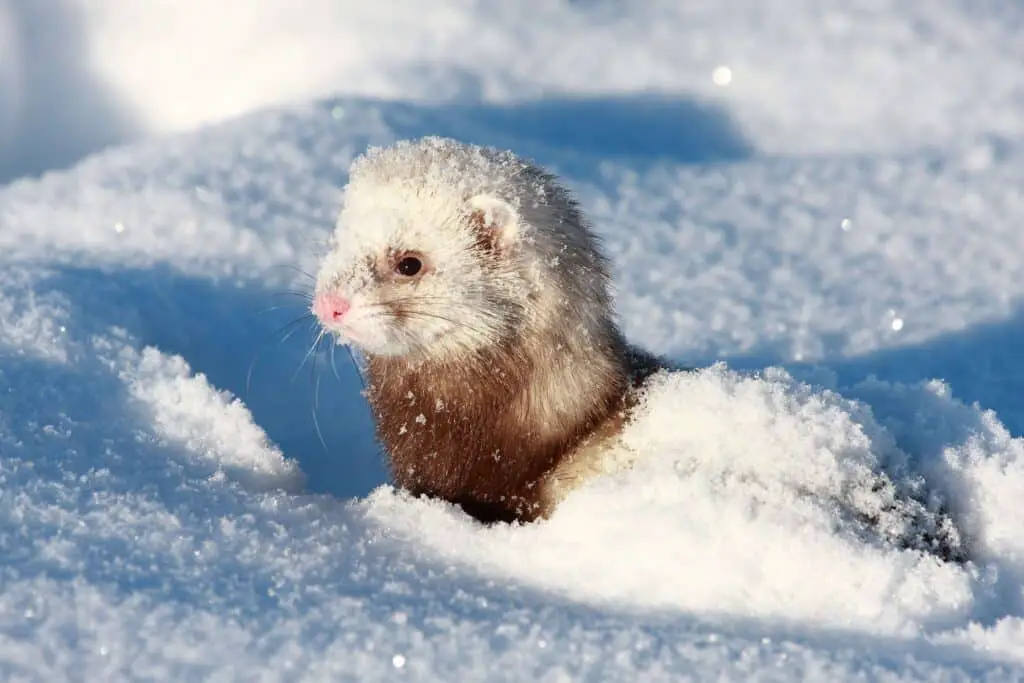
What Temperature Is Too Cold For A Ferret?
Check the temperature of the ferret’s environment; ideally the temperature range should be between 15-26°C/59-78.8°F, although healthy ferrets can cope with a normal UK winter. If your ferret is ill then ensure you provide extra warmth or bring them inside. This also applies after an anesthetic or surgery.
Determining the ideal temperature for a ferret is crucial to ensure their comfort and well-being. Ferrets, like all animals, have specific temperature preferences based on their biology and natural habitat. While they are resilient and can tolerate a range of temperatures, there is a point at which it becomes too cold for them.
Generally, ferrets are most comfortable in temperatures between 60 to 75 degrees Fahrenheit (15 to 24 degrees Celsius). This range closely resembles the mild, temperate climates of their wild ancestors’ habitats in Europe and North America. Within this range, ferrets are active, playful, and content.
When the temperature drops below 50 degrees Fahrenheit (10 degrees Celsius), ferrets start to feel the cold. Their short fur and lack of a thick insulating layer make them vulnerable to chilly conditions. At these lower temperatures, ferrets may become lethargic, seek out warm spots, or even attempt to burrow into blankets or bedding for warmth.
Do Ferrets Need Heat In Winter?
Ferrets are actually more tolerant of cold than they are of heat, but if kept outdoors, they need to be inside a shed with a pet-safe heater to ward off the worst of the wintry chill.
Ferrets are highly sensitive to temperature changes, and during the winter months, it’s essential to provide them with the necessary heat to ensure their well-being and comfort. While ferrets can tolerate cooler temperatures to some extent, they do require additional warmth in cold weather to prevent health issues and ensure they remain active and happy.
Here are several reasons why ferrets need heat in winter:
Limited Cold Tolerance: Ferrets have a relatively low tolerance for cold temperatures due to their short fur and lack of a thick insulating layer. Their natural habitat in temperate regions means they are not well-equipped to handle frigid conditions.
Health Risks: Exposure to cold weather can lead to health problems for ferrets. Prolonged exposure to low temperatures can cause hypothermia, a potentially life-threatening condition that can result in lethargy, shivering, and even death if left untreated.
Reduced Activity: Cold temperatures can make ferrets lethargic and less active. They may be reluctant to play or explore, which can impact their physical and mental well-being.
Respiratory Issues: Cold air can also irritate a ferret’s respiratory system, potentially leading to respiratory infections. Keeping them warm can help prevent such health issues.
Do Ferrets Give Kisses?
Kissing. Just as in humans, your ferret kissing you on the lips can be a sign of affection. It can also mean that your ferret likes the flavor of your lip balm or of the turkey sandwich that you had for lunch.
Ferrets, those charming and playful little creatures, have a unique way of expressing affection that many ferret owners affectionately describe as “ferret kisses.” While these “kisses” may not be exactly like human kisses, they are a demonstration of the strong bond and affection that ferrets can develop with their human caregivers.
Ferrets are social animals known for their inquisitive and affectionate nature. They often form deep attachments to their human companions and express their affection in various ways. One common behavior that resembles a kiss is when a ferret gently nibbles or licks their owner’s face or hands. This behavior is sometimes referred to as “love nipping.”
Love nipping is a way for ferrets to groom and bond with their humans. In the wild, ferrets groom each other as a sign of social bonding and to reinforce their relationships within the group. When a ferret nibbles or licks you, it’s their way of showing affection and trying to groom you, just as they would with another ferret.
Do Ferrets Like Water?
Most ferrets enjoy a bath and playing in water. Fill your sink or bathtub partway with lukewarm water and let your pet enjoy. You may use either ferret or cat shampoo. Ferrets like to play games; two of their favorites are tug of war and hide and seek.
Ferrets, those curious and playful members of the mustelid family, often exhibit a mixed relationship with water. Unlike their otter cousins, who are famously at home in aquatic environments, ferrets are not natural swimmers. However, individual ferrets can have varying reactions to water, and their preferences can be influenced by their upbringing and early experiences.
Here are some key points to consider regarding ferrets and their interaction with water:
Natural Instincts: In the wild, ferrets typically encounter water in the form of puddles or streams while hunting. They are not specialized swimmers, but they can swim when necessary to cross small bodies of water or escape danger. However, they are more terrestrial than aquatic animals.
Mixed Reactions: Ferrets’ reactions to water can vary widely among individuals. Some ferrets may be curious about water and show interest in playing with it, while others may be wary and avoid it at all costs. Early exposure to water during their socialization period (between 3 and 12 weeks of age) can influence their comfort level with water-related activities.
Bathing: Ferrets do not require frequent baths because they are generally clean animals. In fact, bathing too often can strip their skin of natural oils and lead to skin issues. If a ferret does get dirty or smelly, a gentle bath with ferret-safe shampoo is appropriate. However, many ferrets do not enjoy being bathed, so it’s essential to make the experience as stress-free as possible.
Playtime: Some ferrets may enjoy playing in shallow water, such as a small kiddie pool or a basin. It’s essential to supervise them during these activities to ensure their safety, as ferrets can accidentally inhale water if they become too submerged.
Safety: Water and ferrets don’t always mix well. Ensure that your ferret cannot access open toilets, buckets, or containers of water, as they can fall in and struggle to get out, which can be dangerous.
Hydration: While ferrets may not show a strong affinity for water, it’s crucial to provide them with access to clean, fresh water for drinking. Dehydration can be a serious health concern for ferrets.
How Do Ferrets Show Love?
Pet ferrets readily show affection for their human owners through gleeful greeting behavior and willingness to shower owners with ferret kisses. Young ferrets, on the other hand, are not likely to enjoy quiet cuddle time.
Ferrets are renowned for their affectionate and playful nature, and they have unique ways of showing love and forming strong bonds with their human caregivers. While their expressions of affection may differ from those of dogs or cats, ferrets display their love through a combination of behaviors that demonstrate their attachment and trust. Here are some ways in which ferrets show love:
Cuddling
One of the most endearing ways ferrets show love is through cuddling. They enjoy curling up with their owners, nestling against them, or even falling asleep in their laps. This physical closeness is a clear indication of their comfort and affection.
Playfulness
Ferrets are playful creatures, and their desire to engage in interactive play with their owners is a strong sign of affection. They may initiate games of chase, hide-and-seek, or tug-of-war, and their enthusiasm during playtime is a clear expression of their joy in your company.
Grooming
In the ferret world, grooming is a gesture of love and trust. Ferrets may gently nibble or lick their owners as a form of grooming, similar to how they groom each other in their social groups. This behavior signifies their bond and desire to care for you.
Following You
Ferrets are naturally curious, and when they follow you around the house or keep a close eye on your activities, it’s a sign of their attachment. They want to be near you and involved in whatever you’re doing.
Kissing or “Love Nips”
Some ferrets exhibit a behavior known as “love nipping” or “ferret kisses.” This involves gentle nibbling or licking of their owner’s face, hands, or other body parts. While these nips may feel sharp, they are a sign of affection and mimic the grooming behavior they use with other ferrets.
Purring and Happy Dooks
Ferrets can produce a soft, rhythmic sound known as purring when they’re content and relaxed. They may also emit joyful vocalizations called “dooks” during play or when they’re excited to see you. These vocal expressions are their way of communicating happiness and affection.
Nuzzling
Ferrets often nuzzle or bury their heads in their owner’s hands, neck, or clothing. This behavior is another way they seek physical closeness and comfort in your presence.
Relaxed Body Language
A ferret that is comfortable and feels loved will have relaxed body language. They may lie on their back, stretch out, or even flop over in a “dead sleep,” all of which indicate they feel secure in your company.
Do Ferrets Bite A Lot?
A ferret may bite because of pain, but they may also bite to get attention. When you are busy and the ferret wants to play, it is common for them to nip your foot or ankle to say “Hey! I’m down here and I want something.” Realistically, that’s the one part of you these short little animals can reach.
Ferrets are known for their playful and curious nature, but it’s also true that they have a tendency to nip or bite on occasion. Whether or not a ferret bites a lot can depend on several factors, including their age, socialization, and individual personality. Here’s a closer look at ferret biting behavior:
Exploratory Biting
Young ferrets, especially kits (baby ferrets), tend to use their mouths to explore their environment. This is a natural behavior as they are learning about their surroundings. It’s not necessarily an aggressive act, but rather a way for them to interact with and understand their world. As they mature and learn, this behavior often diminishes.
Play Biting
Ferrets are highly playful animals, and play often involves mock biting, nipping, and chasing. Play biting is typically gentle and not intended to harm. It’s their way of engaging in interactive play, similar to how kittens or puppies play-fight.
Communication
Ferrets use biting as a form of communication with humans and other ferrets. Sometimes, they may nip to get your attention, ask for food or play, or signal discomfort or pain. Understanding the context and accompanying body language is essential in interpreting their intentions.
Teething
Young ferrets go through a teething phase, which can make them more inclined to nibble or bite as they seek relief from discomfort. Providing appropriate teething toys can help redirect their chewing behavior.
Fear or Aggression
In rare cases, ferrets may bite out of fear or aggression. Poor socialization or traumatic experiences can contribute to this behavior. Aggressive biting is typically more forceful and not a form of play. It’s essential to address these issues with patience and, if needed, seek advice from a ferret-savvy veterinarian or animal behaviorist.
How do you know if your ferret is cold?
A ferret that has caught a cold might have a runny nose, coughing and might even start sneezing. He may have other symptoms such as a fever, diarrhea, and he may not want to eat at all, or very little.
Recognizing whether your ferret is feeling cold is essential for ensuring their well-being and comfort, as ferrets are sensitive to temperature changes. Their short fur and lack of a thick insulating layer make them vulnerable to cold conditions, so it’s crucial to monitor their comfort levels, especially during colder months or in regions with colder climates. Here are signs to help you determine if your ferret is feeling cold:
Body Language
Huddling or Curling Up: Ferrets will naturally huddle or curl up to conserve heat when they’re feeling cold. If you notice your ferret seeking small, enclosed spaces or nesting in their bedding, they may be trying to stay warm.
Tightened Body Position: When ferrets are cold, they often hold their bodies in a tightened position to minimize heat loss. They may tuck in their legs and keep their tail close to their body.
Physical Signs
Shivering: Just like humans, ferrets shiver when they’re cold. If you observe your ferret trembling or shivering, it’s a clear indication that they’re feeling chilly and need to be warmed up.
Cool Ears and Paws: Touch your ferret’s ears and paws. If they feel cool or cold to the touch, it’s likely that your ferret is experiencing a drop in body temperature.
Cool Nose: A ferret’s nose is usually moist and warm. If it feels cool or dry, your ferret might be cold.
Behavioral Changes
Lethargy or Reduced Activity: Cold temperatures can make ferrets lethargic or less active. If your ferret is not as playful or energetic as usual, it could be due to feeling cold and uncomfortable.
Seeking Warmth: If your ferret is constantly seeking warm spots, such as sitting near heaters or warm appliances, it’s a sign that they are trying to warm themselves.
Vocalization
Whining or Vocalizing: Ferrets may vocalize or whine when they’re uncomfortable or cold. If you hear your ferret making unusual sounds, it’s worth investigating if they’re feeling cold.
Checking the Temperature:
Monitor the Ambient Temperature: Regularly check the room temperature where your ferret resides. If it falls below 60-65 degrees Fahrenheit (15-18 degrees Celsius), it’s likely too cold for your ferret.
How do I keep my ferret warm?
Make sure their enclosure has plenty of warm and dry hiding places such as boxes, tunnels, cat carriers and hammocks. Fill all hides with some cosy blankets for your ferrets to retreat to when it’s a bit too nippy. During freezing weather, you can use pet safe snuggle pads wrapped in a towel to keep them warm.
Keeping your ferret warm is essential to their health and comfort, especially during colder months or in regions with chilly climates. Ferrets are sensitive to temperature changes due to their short fur and lack of a thick insulating layer. Here are several strategies to ensure your ferret stays warm:
Indoor Housing: Keep your ferret indoors in a climate-controlled environment. Indoor living provides a stable temperature and protection from harsh weather conditions.
Appropriate Room Temperature: Maintain a comfortable room temperature for your ferret, ideally between 60 to 75 degrees Fahrenheit (15 to 24 degrees Celsius). Use a thermometer to monitor the temperature in their living area.
Heated Bedding: Provide your ferret with heated bedding options, such as heating pads or blankets designed for small animals. Ensure that these are safe and specifically made for pets to prevent overheating or burns.
Insulated Enclosure: Ensure your ferret’s enclosure or cage is well-insulated and draft-free. You can use blankets or cage covers to help trap heat and keep the cold air out.
Ferret-Proofed Rooms: If you allow your ferret to roam freely in a room or play area, make sure the space is ferret-proofed and comfortably heated. Be cautious with open heating elements or cords that your ferret might chew on.
Wardrobe for Ferrets: Consider dressing your ferret in a ferret-sized sweater or coat during colder weather. Some ferrets tolerate clothing well and benefit from the extra warmth.
Playtime and Interaction: Engage your ferret in active playtime and interaction to keep their body temperature up. Interactive play sessions can help them generate heat.
Snuggle Time: Spend quality time with your ferret, allowing them to snuggle with you under a blanket or in your lap for added warmth and comfort.
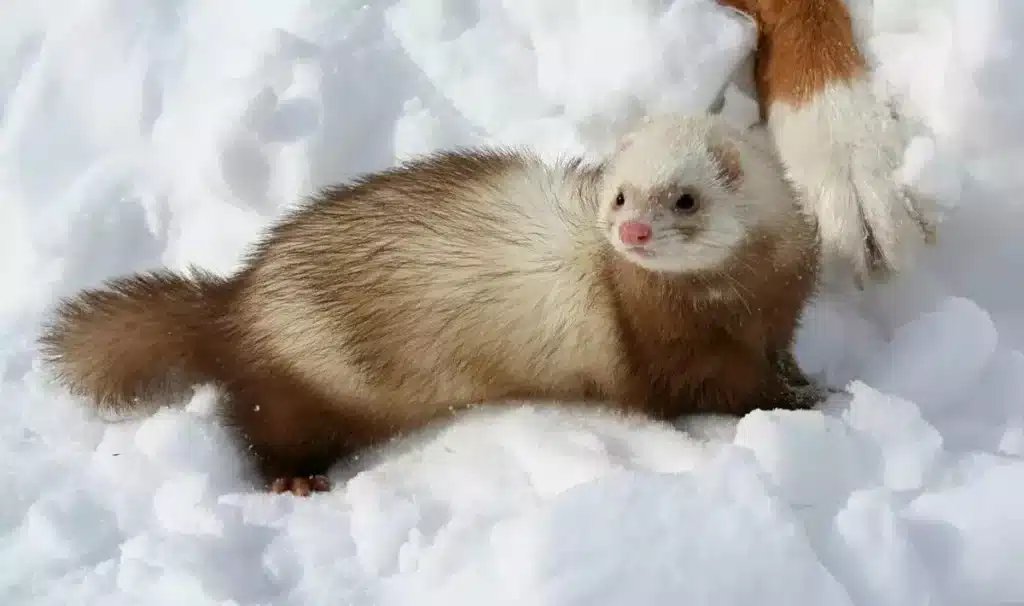
Conclusion
Ferrets like cold weather is one that delves into the intricacies of these charming mustelid creatures and their unique needs. While ferrets are not inherently cold-weather animals, they do have certain adaptations that allow them to tolerate cooler temperatures to some extent. However, it’s essential to consider several key points.
Ferrets are descendants of animals native to temperate regions of Europe and North America, which means they are not naturally equipped for extreme cold. Their short fur and lack of substantial insulation make them susceptible to the chill. Ferrets tend to thrive in milder temperatures, ideally between 60 to 75 degrees Fahrenheit (15 to 24 degrees Celsius).
Individual ferrets have varying levels of cold tolerance. Some may appear more resilient in colder conditions, while others might become uncomfortable even in moderately cool environments. Age, health, and acclimatization can influence a ferret’s ability to handle the cold.
To ensure the well-being of ferrets during colder months, providing a warm and cozy living environment is essential. This includes indoor housing, heated bedding options, insulated enclosures, and monitoring of the ambient temperature. These measures help prevent issues like hypothermia and discomfort while promoting a happy and healthy ferret.

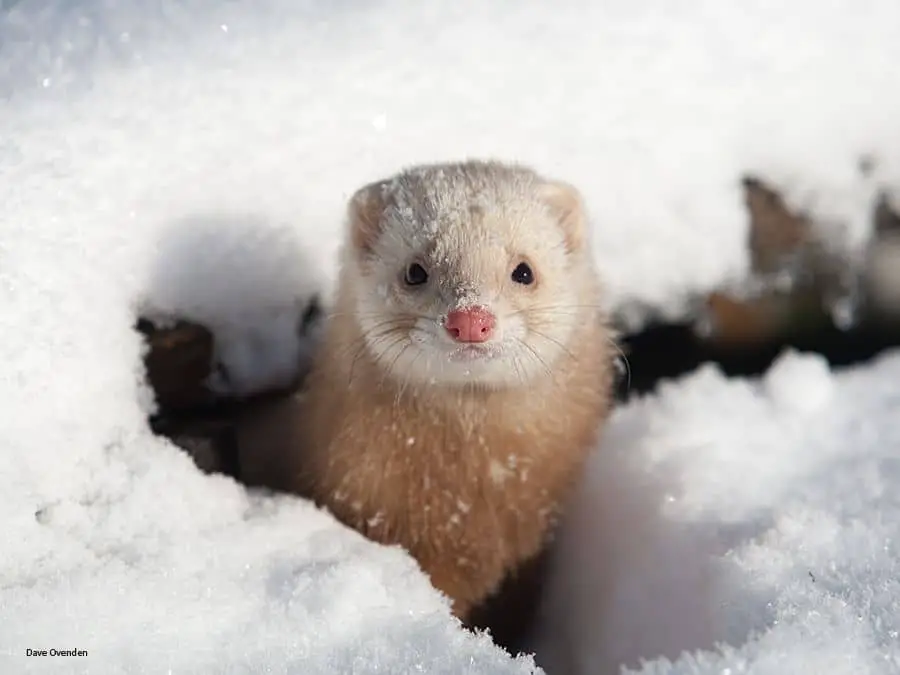
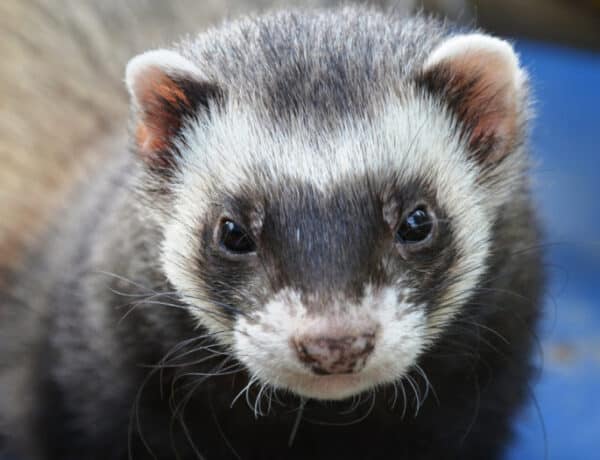

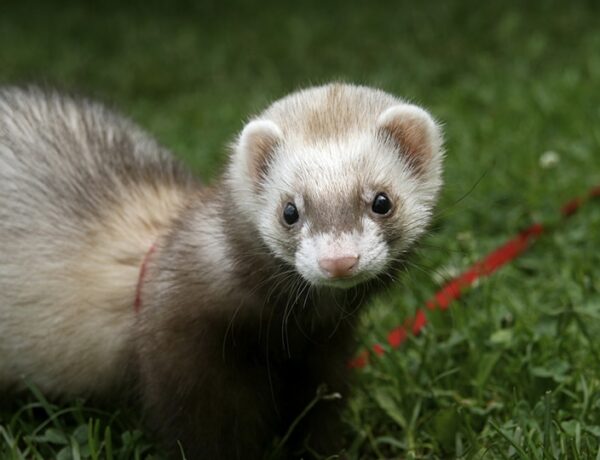
No Comments